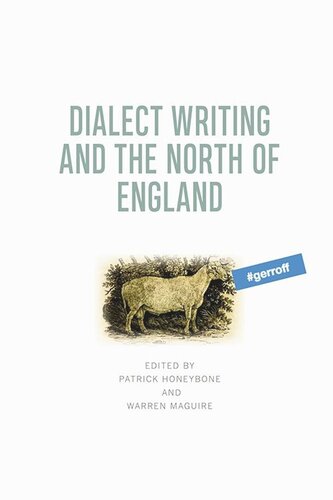

Most ebook files are in PDF format, so you can easily read them using various software such as Foxit Reader or directly on the Google Chrome browser.
Some ebook files are released by publishers in other formats such as .awz, .mobi, .epub, .fb2, etc. You may need to install specific software to read these formats on mobile/PC, such as Calibre.
Please read the tutorial at this link: https://ebookbell.com/faq
We offer FREE conversion to the popular formats you request; however, this may take some time. Therefore, right after payment, please email us, and we will try to provide the service as quickly as possible.
For some exceptional file formats or broken links (if any), please refrain from opening any disputes. Instead, email us first, and we will try to assist within a maximum of 6 hours.
EbookBell Team

4.3
58 reviewsAnalysing examples from 18th century literary texts through to 21st century social media, this is the first comprehensive collection to explore dialect writing in the North of England. The book also considers broad questions about dialect writing in general: What is it? Who does it? What types of dialect writing exist? How can linguists interpret it?
Bringing together a wide range of contributors, the book investigates everything from the cultural positioning and impact of dialect writing to the mechanics of how authors produce dialect spellings (and what this can tell us about the structure of the dialects represented). The book features a number of case studies, focusing on dialect writing from all over the North of England, considering a wide range of types of text, including dialect poetry, translations into dialect, letters, tweets, direct speech in novels, humorous localised volumes, written reports of conversations and cartoons in local newspapers.